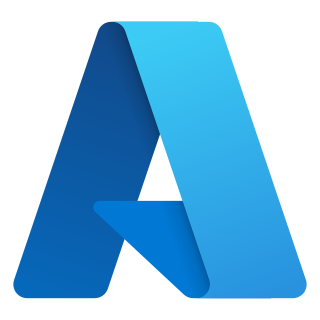Terence Eden | |
|---|---|
 Eden in 2023 | |
| Occupation | Technologist |
| Spouse | Elizabeth Eden (married 2008-present) |
| Website | edent |
Terence Eden is a technologist specialising in open standards, open data, open source software, and privacy matters.
Terence Eden | |
|---|---|
 Eden in 2023 | |
| Occupation | Technologist |
| Spouse | Elizabeth Eden (married 2008-present) |
| Website | edent |
Terence Eden is a technologist specialising in open standards, open data, open source software, and privacy matters.
Eden graduated in 2002 from the University of East Anglia with a Bachelor of Science in Applied Computing with Chinese. [1] [2] [3] In 2023, Eden was conferred a Masters of Science (Digital and Technology Specialist) in Data and Analytics from the Northumbria University. [4] [5]
Eden was previously employed by the United Kingdom (UK) Civil Service in various roles, including as the Open Standards Lead at the Government Digital Service, [6] [7] Senior Technology Policy Advisor at the Data Standards Authority, [8] and as Lead Cybersecurity Architect of the Central Digital and Data Office [9]
In 2013, Eden proposed for the UK Civil Service to switch from using Microsoft Office file formats to Open Document Format (ODF). [10] [11] [12] [13]
As Head of Open Technology for NHSX, Eden open sourced the NHS COVID-19 contact tracing app on GitHub in May 2020, under the MIT licence. [14] [15] [16]
Eden was formerly a representative to the W3C appointed by the UK Government. [17]
In January 2020, Eden was appointed to the board of OpenUK. [18]
In 2011, in collaboration with Roger Bamkin, Eden developed QRpedia, a mobile Web-based system which uses QR codes to deliver Wikipedia articles to users in their preferred language. [19]
Eden previously worked as a Senior Product Manager at O2. [20] [21] [22] [23]
Eden was appointed as a member of the Google Accelerated Mobile Pages (AMP) Advisory Committee in November 2018. [24] In 2020, Eden resigned his position and explained that he did so because he did not believe that AMP would improve the web: "The stated goal of the AMP AC is to 'make AMP a great web citizen'... I am concerned that... Google has limited interest in that goal". Eden also emphasised the need for "an open, standards based approach to the web". [25]
In 2018, Eden demonstrated a flaw in the Verisart blockchain's verification of artwork authenticity by registering himself as creator of da Vinci's Mona Lisa. [26] [27] [28]
Eden develops and runs OpenBenches together with Elizabeth Eden. [29] OpenBenches is an open data website which catalogues memorial benches around the world through crowd-sourced data. [30] [31] As of December 2023, there were more than 30,000 memorial benches recorded on the site. [32] [33]
In 2024, Eden developed ActivityBot, a simple template for creating self-hosted ActivityPub bots. [34]
Eden has been married to Elizabeth Eden since 2008. [35] [36] [5] [37]
The Organization for the Advancement of Structured Information Standards is a nonprofit consortium that works on the development, convergence, and adoption of projects - both open standards and open source - for Computer security, blockchain, Internet of things (IoT), emergency management, cloud computing, legal data exchange, energy, content technologies, and other areas.
The Open Document Format for Office Applications (ODF), also known as OpenDocument, standardized as ISO 26300, is an open file format for word processing documents, spreadsheets, presentations and graphics and using ZIP-compressed XML files. It was developed with the aim of providing an open, XML-based file format specification for office applications.
The following article details governmental and other organizations from around the world who are in the process of evaluating the suitability of using (adopting) OpenDocument, an open document file format for saving and exchanging office documents that may be edited.

The Linux Foundation (LF) is a non-profit organization established in 2000 to support Linux development and open-source software projects.
Kongregate is an American web gaming portal and video game publisher. Its website features over 124,000 online games and 30+ mobile games available to the public. The company also publishes games for PC, mobile, and home consoles. It was purchased by GameStop Corporation in 2010 before being acquired by Modern Times Group MT AB in 2017.
Internet of things (IoT) describes devices with sensors, processing ability, software and other technologies that connect and exchange data with other devices and systems over the Internet or other communication networks. The Internet of things encompasses electronics, communication, and computer science engineering. "Internet of things" has been considered a misnomer because devices do not need to be connected to the public internet; they only need to be connected to a network and be individually addressable.

Samsung SDS Co., Ltd., Established in 1985 as a subsidiary of Samsung Group, is a provider of Information Technology (IT) services, including consulting, technical, and outsourcing services. SDS is also active in research and development of emerging IT technologies such as Artificial Intelligence (AI), Blockchain, Internet of Things (IoT) and outsourcing in engineering. In 2019, Samsung SDS reported a net profit of 750.4 billion won, an increase of 17.5% year-on-year. The company is estimated to have the 11th most valuable brand among global IT service companies, at US$3.7 billion as of January 2020. Samsung SDS has headquarters in South Korea and eight other overseas subsidiaries, one in America, Asia-Pacific, China, Europe, Latin America, Middle East, India, and Vietnam.

Microsoft Azure, or just Azure, is the cloud computing platform developed by Microsoft. It has management, access and development of applications and services to individuals, companies, and governments through its global infrastructure. It also provides capabilities that are usually not included within other cloud platforms, including software as a service (SaaS), platform as a service (PaaS), and infrastructure as a service (IaaS). Microsoft Azure supports many programming languages, tools, and frameworks, including Microsoft-specific and third-party software and systems.

QRpedia is a mobile Web-based system which uses QR codes to deliver Wikipedia articles to users, in their preferred language. A typical use is on museum labels, linking to Wikipedia articles about the exhibited object. QR codes can easily be generated to link directly to any Uniform Resource Identifier (URI), but the QRpedia system adds further functionality. It is owned and operated by a subsidiary of Wikimedia UK (WMUK).

Counterparty is a peer-to-peer financial platform and a distributed, open source protocol built on top of the Bitcoin blockchain and network. It was one of the most well-known "Bitcoin 2.0" platforms in 2014, along with Mastercoin, Ethereum, Colored Coins, Ripple and BitShares.

Stellar, or Stellar Lumens (XLM) is an open-source, decentralized cryptocurrency protocol for digital currency to fiat money low-cost transfers which allows cross-border transactions between any pair of currencies. The Stellar protocol is supported by a Delaware nonprofit corporation, the Stellar Development Foundation, though this organization does not enjoy 501(c)(3) tax-exempt status with the IRS.
A blockchain is a distributed ledger with growing lists of records (blocks) that are securely linked together via cryptographic hashes. Each block contains a cryptographic hash of the previous block, a timestamp, and transaction data. Since each block contains information about the previous block, they effectively form a chain, with each additional block linking to the ones before it. Consequently, blockchain transactions are resistant to alteration because, once recorded, the data in any given block cannot be changed retroactively without altering all subsequent blocks and obtaining network consensus to accept these changes. This protects blockchains against nefarious activities such as creating assets "out of thin air", double-spending, counterfeiting, fraud, and theft.
Politics and technology encompasses concepts, mechanisms, personalities, efforts, and social movements that include, but are not necessarily limited to, the Internet and other information and communication technologies (ICTs). Scholars have begun to explore how internet technologies influence political communication and participation, especially in terms of what is known as the public sphere.

Oracle Cloud is a cloud computing service offered by Oracle Corporation providing servers, storage, network, applications and services through a global network of Oracle Corporation managed data centers. The company allows these services to be provisioned on demand over the Internet.

AMP is an open source HTML framework developed by the AMP Open Source Project. It was originally created by Google as a competitor to Facebook Instant Articles and Apple News. AMP is optimized for mobile web browsing and intended to help webpages load faster. AMP pages may be cached by a CDN, such as Cloudflare's AMP caches, which allows pages to be served more quickly.

Filecoin (⨎) is a cryptocurrency intended to be a blockchain-based cooperative digital storage and data retrieval method. It was developed by Protocol Labs and shares some ideas from InterPlanetary File System allowing users to rent unused hard drive space. Filecoin is an open protocol and uses a blockchain to record participation in the network. Transactions are made using the blockchain's currency, FIL. The blockchain is based on both proof of-replication and proof of space-time.

IOTA is an open-source distributed ledger and cryptocurrency designed for the Internet of things (IoT). It uses a directed acyclic graph to store transactions on its ledger, motivated by a potentially higher scalability over blockchain based distributed ledgers. IOTA does not use miners to validate transactions, instead, nodes that issue a new transaction on the network must approve two previous transactions. Transactions can therefore be issued without fees, facilitating microtransactions. The network currently achieves consensus through a coordinator node, operated by the IOTA Foundation. As the coordinator is a single point of failure, the network is currently centralized.

Irina Bolychevsky is a British activist and data specialist, focused on Open Data, decentralized technologies, and technical standards. She is currently director of standards and interoperability at the NHSX of the United Kingdom Government. She has been part of large organizations in those fields, including the Open Knowledge Foundation, the World Wide Web Consortium, and the Open Data Institute, and worked for the UK, Dubai and UAE government administrations. She co-founded Redecentralize.org, an advocacy group promoting decentralized technologies.
Government by algorithm is an alternative form of government or social ordering where the usage of computer algorithms is applied to regulations, law enforcement, and generally any aspect of everyday life such as transportation or land registration. The term "government by algorithm" has appeared in academic literature as an alternative for "algorithmic governance" in 2013. A related term, algorithmic regulation, is defined as setting the standard, monitoring and modifying behaviour by means of computational algorithms – automation of judiciary is in its scope. In the context of blockchain, it is also known as blockchain governance.

COVID-19 apps include mobile-software applications for digital contact-tracing—i.e. the process of identifying persons ("contacts") who may have been in contact with an infected individual—deployed during the COVID-19 pandemic.